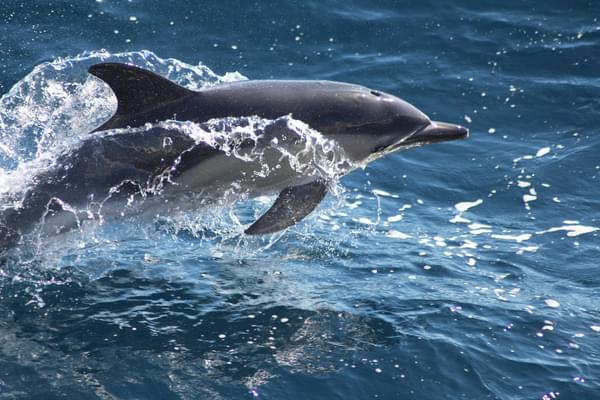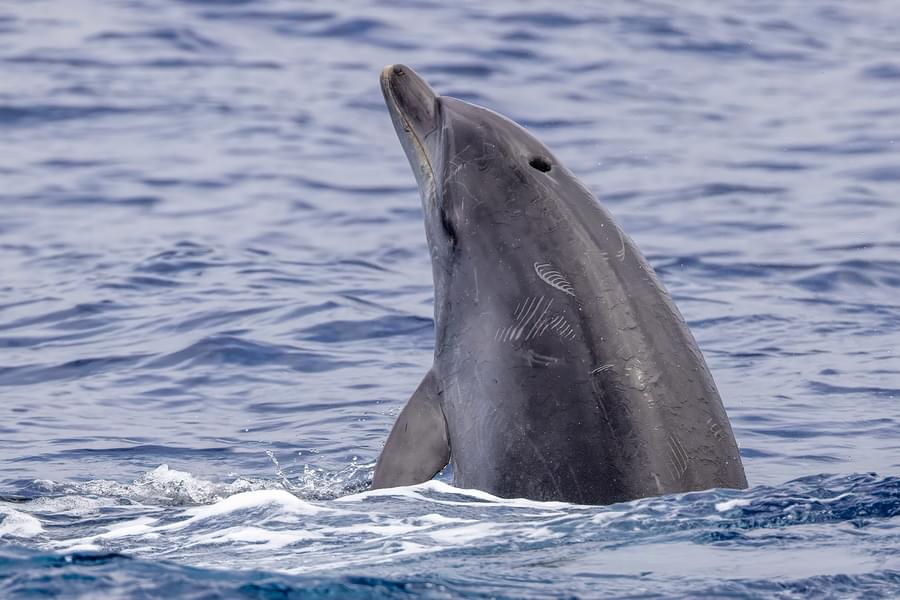Every so often, a lone dolphin captures the imagination of a community. This summer it has been Reggie, the bottlenose dolphin who has made Lyme Bay his temporary home. His playful behaviour and very real curiosity towards people and interactions with them, has delighted beachgoers and filled social media feeds.
But behind the joy of these encounters lies a very real risk - both to Reggie, and to the public who share the water with him. That’s why the UK’s Marine Management Organisation (MMO) has issued new guidance on how to behave around solitary dolphins, with a clear message: admire from a distance.
Lone vs. Sociable Dolphins
Not all solitary dolphins are the same. Some are simply separated from their pod through natural causes such as injury or displacement. These individuals tend to remain wary of people and may eventually re-join other dolphins.
Others, however, become what experts call solitary sociable dolphins: animals that seek out humans and boats, and over time lose their natural wariness. This makes them more vulnerable to harm in busy inshore waters.
As Liz Sandeman of Marine Connection explains:
“Solitary, sociable dolphins represent a unique behavioural group that requires focused conservation efforts. Once they become accustomed to humans, their risk of injury, stress, and behavioural changes increases dramatically.”
That shift in behaviour doesn’t just endanger dolphins. Their interactions can quickly become rough - tail-slaps, head-butts, even pushing people underwater as has been the case with Reggie - without the dolphin realising its own strength and agility versus a human in the water.
Why Human Contact is Harmful
Even when well-intentioned, close encounters can cause:
Disruption of natural behaviours like feeding and resting
Stress and aggression, making dolphins unpredictable
Habituation to humans, leaving them more at risk from boats or fishing gear
Legal consequences: disturbing cetaceans in England is a criminal offence, with fines or even imprisonment
Jess Churchill-Bissett, Head of Marine Conservation at MMO, sums it up:
“Repeated human interaction inevitably disrupts their natural behaviours, increasing stress and potentially altering their temperament. Once habituated to humans, dolphins can lose their natural wariness - a change that can be fatal.”
Lessons from Reggie
Reggie’s story has already shown how quickly admiration and awe can slide into risk. His increasing comfort around swimmers has led to Reggie sustaining injuries and people becoming concerned for their own welfare, raising alarm among conservationists. What began as admittedly extraordinary encounters between human and animal could, without care, end in tragedy.
The good news is that communities are responding. Workshops, online talks and local campaigns have seen strong engagement from those eager to enjoy Reggie’s presence responsibly.
How You Can Help
The MMO, alongside ORCA and other charities, recommends a simple code of conduct:
Don’t enter the water if a dolphin is present
Never feed, chase, or touch dolphins
Slow boats to under five knots and maintain a steady course
Report concerning behaviour to local authorities
If you’re ever approached by a dolphin while swimming, remain calm, leave the water quietly, and give the animal space. However tempting it may be to do otherwise.
Keeping Dolphins Wild and Free
At ORCA we share the MMO’s belief that these incredible animals must remain just that - wild. By giving dolphins like Reggie space, respect and understanding, we can help ensure they continue to thrive in our waters without being put at risk by human interactions.
As Churchill-Bissett reminds us:
“By understanding their unique behaviours and giving them space, we can help ensure these remarkable animals remain safe, wild, and free.”
Main image: Bottlenose dolphin (Richard Lovelock)

ORCA's work to protect whales and dolphins has never been more important and to help safeguard these amazing animals for the future we need your help. Please support our work by donating at www.orca.org.uk/donate to help us create oceans alive with whales and dolphins

